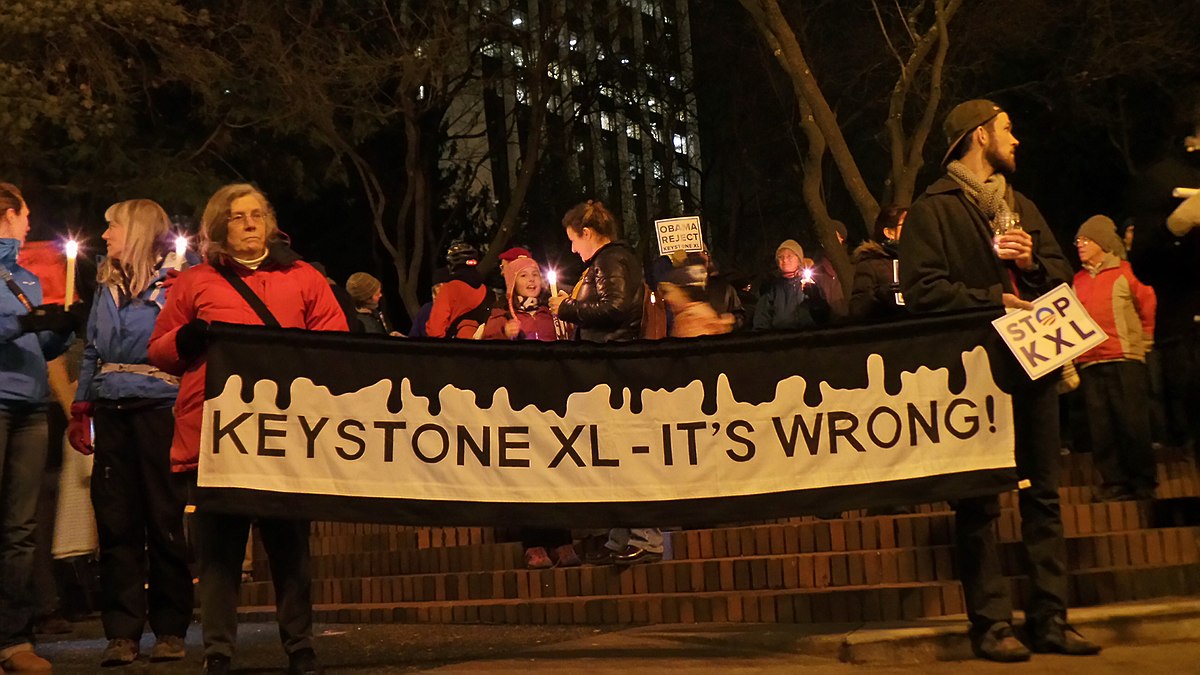
Bad News Piles Up for TransCanada Over Keystone XL Pipeline
As millions celebrate Thanksgiving, the bosses at TransCanada will not be in a cheerful, festive mood. They will be wondering what went wrong over the last week, after they seem to have snatched defeat from the jaws of victory.
As millions celebrate Thanksgiving, the bosses at TransCanada will not be in a cheerful, festive mood.
They will be wondering what went wrong over the last week, after they seem to have snatched defeat from the jaws of victory.
This time last week, the company was seen to be one regulatory announcement away from completing its highly controversial Keystone XL (KXL) pipeline, which will transport the dirty tar sands of Canada to the Gulf Coast refineries in the US.
But everything started to go wrong last Thursday, when the company suffered its first mishap by spilling some 210,000 gallons of crude across farmland in Dakota. It was the third major spill along the KXL route in ten years.
Estimates of the exact size of the spill vary, but Vice News later reported local landowners saying the spill could be as large as 600,000 gallons. Kent Moeckly, a land owner and member of the Dakota Rural Action Group, told VICE News that Transcanada thought it was 200,000 gallons. What we found out working with Transcanada, it could very well be 600,000 gallons.”
So that was mishap one for the company.
The spill came days before a crucial meeting of the Nebraska Public Service Commission, which was voting on whether to allow a 275 mile section of the pipeline to be built through the state. It was seen as the last significant regulatory hurdle for the pipeline.
The one thing working in the company’s favour is that, as the New York Times reported befor the decision, “under Nebraska law, the state Public Service Commission is not allowed to consider pipeline safety and spill risks when deciding on a permit.”
So crucially for the company the Commission could not take the spill into consideration. And although on Monday they voted 3-2 in favour of allowing the pipeline to be built, they also voted for what is known officially as the Mainline Alternative Route. This is not what the company wanted.
As I blogged on Tuesday: “It would be wrong to see this as a victory for TransCanada. You could actually see it as a defeat … Instead of getting their preferred route, the company now has to go and persuade dozens of new landowners to build on their land. It has to persuade investors that it can do that. And that will take years. And it will go to the courts. And every day the pipeline is delayed, investors will get more and more nervous about investing in an increasingly obsolete pipeline.”
Jane Kleeb, the head of Bold Nebraska tweeted: “Today was a victory for everyone working to stop Keystone XL. TransCanada did not get their preferred route which means years of new review and legal challenges are now on the table”. #NoKXL #Resolute
Judith Le Blanc, the Field Director for Peace Action, wrote on Common Dreams yesterday, that the “decision opens a new terrain to continue the fight to prevent the building of KXL, and it can be stopped if we build on the strong relationships between Native leadership and non-Native farmers and ranchers. We can leverage the power of organized prayer in a values-led campaign that puts Mother Earth above profit-hungry fossil fuel corporations.”
The company’s predicament was also summed up nicely in a headline by CBC. “Keystone XL clears final hurdle only to see more hurdles”.
So that mishap number two for the company.
But the week has got worse for TransCanada. On Tuesday, South Dakota regulators announced they might revoke TransCanada permit to operate the KXL pipeline if the state’s investigation into last week’s spill finds the company violated its license.
Kristie Fiegen, chair of the three-person South Dakota Public Utilities Commission, told Reuters “We are waiting to see what the forensic analysis comes back with to see if any of our conditions were violated. ” She added that a violation could lead to a suspension or cancellation of the permit.
Chris Nelson, another commissioner, added that the South Dakota Commission “needs to determine whether any of the permit conditions for this pipeline were violated. Those conditions were placed on the permit to ensure safe construction and operation of the pipeline”.
A preliminary report about the spill from federal and state technical experts is expected in the next 10 days or so and could be a serious problem for the company. Mishap number three.
And then yesterday, mishap number four.
A federal judge ruled that a lawsuit brought by environmental groups could proceed against the Trump Administration’s cross-border permit for KXL. The District Judge, Brian Morris, rejected arguments put forward by the Trump administration and TransCanada to have the legal action dismissed.
The Sierra Club and numerous other groups, had filed a suit back in March alleging that the State Department and other agencies had relied on outdated environmental reviews for the pipeline.
Sierra Club Senior Attorney, Doug Hayes, said: “The American people will not stand by as the administration tries to bypass critical environmental laws that exist to protect our land and our clean water. Keystone XL is a threat to our land, water, wildlife, and climate, and we will continue fighting, in the courts and in the streets, to ensure that it is never built.”
Somehow you get the feeling that the bosses at TransCanada will not be enjoying their turkey.

